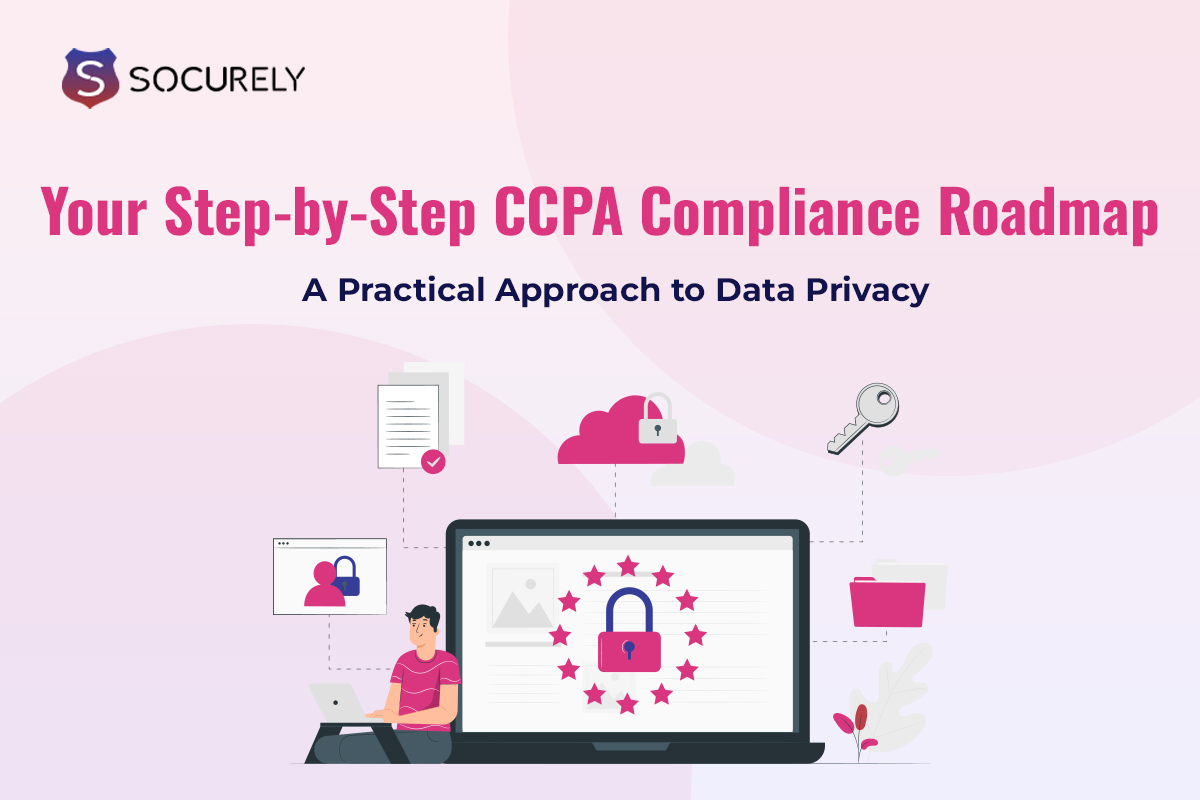From cyber threats to targeted marketing tactics, the utilization of personal data raises significant ethical and security considerations. Recognizing the urgency of addressing these issues, California has introduced comprehensive legislation impacting businesses within the state. Enacted in 2020, the California Consumer Protection Act (CCPA) stands as a state law, granting residents unprecedented rights regarding their personal data. Under this legislation, Californian consumers can access information about the collection, deletion, and opt-out of their personal data’s usage and sale. Given California’s status as the most populous state with the largest economy in the US, CCPA compliance is not just a legal requirement but a strategic necessity for businesses, particularly those in the technology sector. Failure to adhere to the CCPA can result in severe penalties, including substantial fines and a loss of trust from customers. As businesses continually push the boundaries of innovation in a rapidly evolving tech landscape, California’s proactive stance on data privacy serves as a crucial reminder of the importance of both legal and ethical considerations.
What is CCPA Compliance?
The California Consumer Privacy Act (CCPA) stands as a pivotal state statute aimed at safeguarding the data privacy rights of California consumers against private corporate entities. Enacted in 2018 and enforced since January 1, 2020, the CCPA grants consumers significant control over their personal data, which is routinely collected and tracked by for-profit organizations. According to California’s Attorney General, the CCPA introduces several key privacy rights for consumers, including:
– The right to be informed about the personal information collected, utilized, and shared by businesses.
– The right to request the deletion of personal information held by businesses, with certain exceptions.
– The right to decline the sale of their personal information to third parties.
– The right to protection against discrimination for exercising their CCPA rights.
Prior to the enactment of the CCPA, there existed no robust regulations governing the usage, sale, or dissemination of personal data. With the CCPA in effect, California residents now wield greater authority over the security of their personal information. Additionally, any contractual provision attempting to waive consumers’ data rights is rendered unenforceable under the CCPA, further bolstering consumer protection measures.
Why prioritize CCPA Compliance?
The California Consumer Privacy Act (CCPA) is a pivotal state law that holds significant implications for businesses engaging with California residents’ personal information. Compliance with CCPA regulations is imperative for any entity involved in the collection, usage, or sale of Californians’ personal data. Here’s why achieving CCPA compliance is essential:
- Legal Obligation: As a California state law, adherence to the CCPA is mandatory for businesses operating within the state’s jurisdiction. Non-compliance can lead to penalties and legal repercussions, potentially disrupting business operations.
- Access to Lucrative Market: California boasts the largest consumer market in the United States. By ensuring CCPA compliance, businesses can seamlessly continue operations and sales within this lucrative market without facing interruptions or fines.
- Trust and Reputation: Demonstrating CCPA compliance signals a commitment to data privacy and security, enhancing trust and credibility among customers and prospects. Compliance instills confidence in consumers regarding how their personal information is handled, fostering positive brand perception.
- Competitive Edge: Compliance with CCPA regulations allows businesses, especially those in the technology sector, to differentiate themselves from competitors. It showcases the sophistication of their data security measures, addressing common concerns and positioning them as trustworthy partners.
- Future-Proofing: The CCPA serves as a pioneering data privacy legislation, setting a precedent for similar regulations in other markets. By proactively complying with CCPA requirements, organizations prepare themselves for evolving consumer privacy laws globally, ensuring readiness for future compliance challenges.
Who Needs to Comply with CCPA?
Unlike GDPR, CCPA applies to a narrower range of organizations but with specific criteria. All for-profit businesses fall under CCPA’s jurisdiction if they meet any of the following conditions:
Sell the personal information of over 50,000 California residents annually.
Have an annual gross income exceeding $25 million.
Generate more than 50% of their annual revenue from selling California residents’ data.
Moreover, CCPA regulations extend to businesses sharing common branding with those meeting the compliance criteria. Public and non-profit entities are exempt from CCPA provisions.
CCPA Compliance: What Does it Entail?
CCPA grants Californian consumers several rights, including the right to opt-out of data selling, access to their collected data, deletion requests, and equal service regardless of privacy choices. To achieve compliance, businesses must:
- Notify users about data collection practices and purposes.
- Provide opt-out mechanisms for data selling.
- Implement specific opt-in processes for minors’ data selling.
- Maintain updated privacy policies outlining user rights and data practices.
Why is CCPA Compliance Important?
CCPA compliance is crucial for businesses aiming to engage with California residents. Failure to comply carries significant consequences, including hefty fines and potential compensation claims from affected individuals. Moreover, non-compliance tarnishes reputation and erodes consumer trust, leading to potential customer loss and competitive disadvantage.
In essence, understanding and adhering to CCPA regulations is imperative for businesses operating in California, ensuring legal compliance, safeguarding consumer rights, and maintaining trust and reputation in an increasingly data-centric landscape.
Ensuring Compliance with CCPA Regulations
For businesses falling within the purview of CCPA regulations, achieving compliance requires meticulous adherence to its stipulated requirements. Here’s a breakdown of key obligations and measures necessary to comply with CCPA:
- Notice of Data Collection:
– Before collecting personal data from consumers, businesses must issue a notice detailing the types of data collected and its intended use. Transparency is paramount to ensure consumers are informed about the data being collected.
- Opt-Out Mechanisms:
– Businesses must facilitate accessible means for consumers to exercise their rights to opt out of data selling. This includes prominently displaying a “Do Not Sell My Info” link on their website or mobile app to honor consumer preferences regarding data usage.
- Timely Response to Consumer Requests:
– Upon receiving consumer requests to know, delete, or opt out of data collection, businesses must respond promptly. The CCPA mandates a response within 45 days, extendable to 90 days in certain cases, ensuring consumers’ rights are honored in a timely manner.
- Identity Verification Protocols:
– To fulfill requests related to consumer data, businesses must implement robust identity verification procedures. Accurate verification of consumer identity is essential to safeguard against unauthorized access or misuse of personal information.
- Disclosure of Financial Incentives:
– Businesses engaged in financial incentives derived from personal data transactions must disclose such arrangements transparently. This includes providing a clear rationale for calculating the value of consumer data, fostering trust and accountability in data handling practices.
- Maintenance of Compliance Records:
– Demonstrating compliance necessitates meticulous record-keeping. Businesses must maintain comprehensive records of consumer requests and corresponding responses for a minimum of 24 months. This ensures accountability and facilitates audits to verify compliance with CCPA regulations.
By meticulously adhering to these obligations, businesses can navigate the complexities of CCPA compliance, safeguard consumer rights, and uphold trust in data handling practices. Compliance not only mitigates legal risks but also fosters transparency and accountability, enhancing brand reputation in an increasingly data-driven ecosystem.
Final Words
Socurely extends its expertise beyond borders, offering tailored solutions to assist businesses in achieving CCPA Compliance. Leveraging its comprehensive CCPA Compliance platform, Socurely helps Canadian organizations navigate the intricacies of data privacy regulations. From establishing robust policies and procedures to conducting specialized training sessions, Socurely ensures seamless adherence to CCPA requirements. By automating compliance measures and providing real-time solutions, Socurely empowers Canadian businesses to enhance data security, mitigate risks, and maintain regulatory compliance with confidence. With 24/7 support and a dedicated team of compliance professionals, Socurely stands as the trusted partner for Canadian businesses striving for data privacy excellence.







